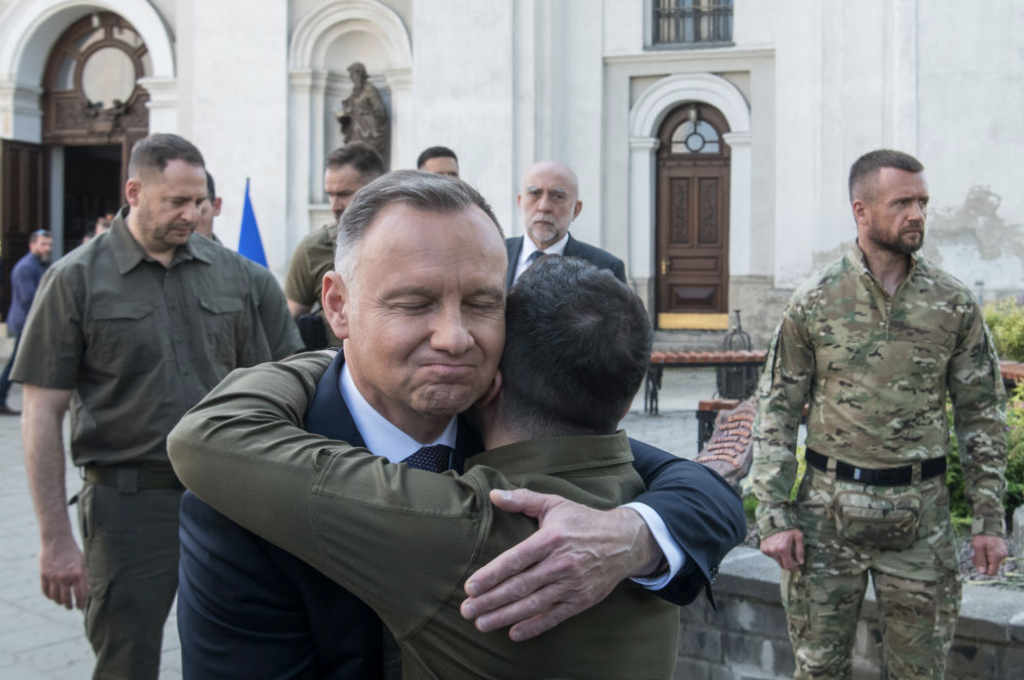The Volyn Tragedy: A Dark Chapter in Ukrainian-Polish Relations
The Volyn tragedy, also known as the Volyn massacres, stands as one of the most painful and contentious episodes in the shared history of Ukraine and Poland. It occurred in 1943, during the chaos of World War II, in the Volyn region of what is now western Ukraine. At the time, the region was under Nazi occupation, and tensions between ethnic Poles and Ukrainians were running high. The Ukrainian Insurgent Army (UPA), a nationalist group fighting for Ukrainian independence, carried out mass killings of Polish civilians, resulting in tens of thousands of deaths. In retaliation, Polish military groups also killed thousands of Ukrainians. This tragic cycle of violence has left deep scars in the relations between the two nations, even decades later.
Preparations for Exhumation of Victims Begin
In a significant step toward addressing this dark history, Ukraine’s Ambassador to Poland, Vasyl Bodnar, announced on February 8 that preparations for the exhumation of the remains of Polish victims of the Volyn tragedy are underway. Speaking in an interview with Polish TV channel TVN24, Bodnar revealed that the exhumation process is expected to begin in the spring, with the exact timing dependent on weather conditions. Teams are currently working to identify all the locations in both Poland and Ukraine where exhumations will need to be conducted. This process is not only a technical challenge but also a deeply emotional one, as it involves uncovering the remains of victims who have lain undisturbed for nearly 80 years.
A Thorn in the Side of Ukrainian-Polish Relations
The Volyn tragedy has long been a point of contention between Ukraine and Poland, straining the otherwise strong alliance between the two nations. Poland has repeatedly raised the issue of the massacres and the exhumation of remains as a potential obstacle to Ukraine’s bid to join the European Union. In September, however, Speaker of the Polish Parliament Szymon Holownia appeared to soften this stance, signaling a willingness to move forward. The announcement of a breakthrough in January, when the two countries agreed to begin the first exhumations, marked a turning point in their relations. Polish media later reported that the exhumations would commence in April, offering hope for some measure of closure for the families of the victims.
The Exhumation Process and Funding
The exhumation project is a complex endeavor, requiring careful planning and coordination between Ukraine and Poland. According to Ambassador Bodnar, Ukrainian legislation mandates that the exhumations must be carried out by a licensed Ukrainian company. A Polish partner has already been identified to assist with the project, ensuring a collaborative approach. While Poland is covering the majority of the costs, Ukraine has also committed to contributing financially, demonstrating its commitment to addressing this painful chapter in its history. The involvement of both nations underscores the importance of mutual effort in healing old wounds and moving forward.
Poland’s Support for Ukraine and Its Limits
Despite Poland’s strong support for Ukraine in its ongoing conflict with Russia, the issue of the Volyn tragedy has always been a sensitive topic. In July, Poland’s Defense Minister, Władysław Kosiniak-Kamysz, emphasized that while Poland stands firmly behind Ukraine in its fight for sovereignty, there are limits to its support. He made it clear that Ukraine cannot expect Poland’s backing for EU membership unless it addresses issues like the Volyn massacres and their aftermath. This statement served as a reminder that historical grievances can have real-world implications for modern-day diplomacy and cooperation.
Moving Forward: Reconciliation and Healing
The agreement to proceed with the exhumations represents a crucial step toward reconciliation between Ukraine and Poland. It is a testament to the enduring ties between the two nations and their shared commitment to addressing the atrocities of the past. By confronting this painful history together, Ukraine and Poland can work toward a future built on mutual understanding and respect. The Volyn tragedy will always be a dark chapter in their shared history, but it is through acts of cooperation and empathy that both nations can begin to heal and move forward. This process is not just about uncovering the past but also about building a foundation for a stronger, more united future.












